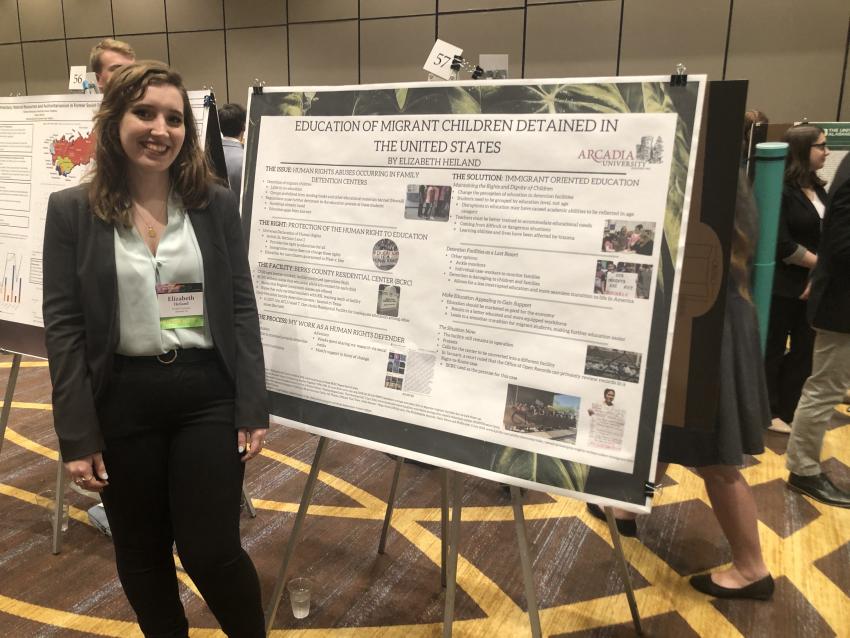Honors Students Present on Holocaust, Migrant Children, and First Amendment at National Conference

Elizabeth Heiland with her poster at the conference.
Four students presented at the 54th National Collegiate Honors Conference (NCHC) in New Orleans from Nov. 6 to 10 on the rescue efforts of Jewish people during the Holocaust, the education of detained migrant children, the First Amendment and how it relations to American war memorials, and the need for more accessibility in study abroad.
“My project was an adaptation,” said Politics, Government, and Law major Tim Spangler ’20. “I took the American Legion v. American Humanist Association Supreme Court case and looked at how it affected war memorials and religion today. I picked the case to analyze because the actual implications of the case in the real world were so complicated.”
Politics, Government, and Law major Ryan Dunne ’21 won second place in the largest category, Social Sciences, for his presentation “Carl Lutz: Forgotten Saviour of 62,000 Jews during the Holocaust,” which focused on Lutz’s rescue 62,000 Hungarian Jews during the Holocaust. Dunne, a Swiss native who was educated in England, is a relative of Lutz.
In addition to Spangler and Dunne, Elizabeth Heiland ’20 and Cali Willcockson ’20 each presented at the conference, which was themed of “Disrupting Education: Creativity and Innovation in Honors.” Heiland presented on the education of detained migrant children in the United States, while Willcockson presented on the lack of accessibility in study abroad.
“My project came from my experience trying to study abroad with a disability, and not having many resources,” said Willcockson, an International Studies major. Her project was a hands-on collaboration with Arcadia’s Office of Study Away, which created online and print resources for individuals interested in studying abroad. “If you’re applying for study abroad with a disability the only good resource is mobility international. I wanted to make information available for all students and make it less scary. Many people with disabilities don’t even think they can study abroad.”


